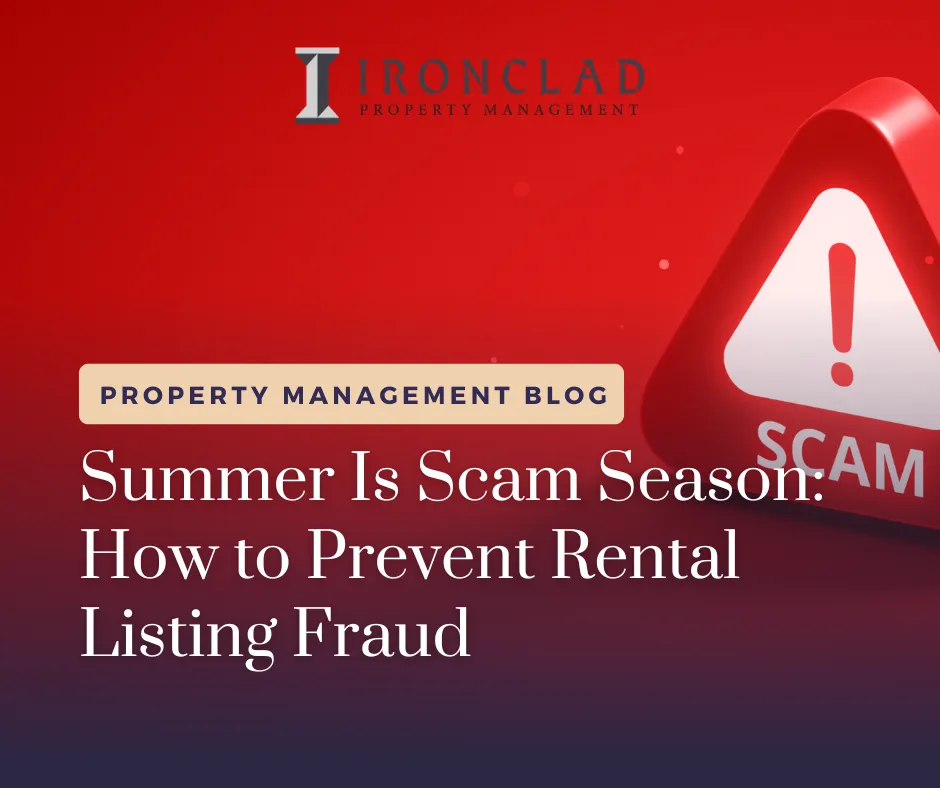
Summer Is Scam Season: How to Prevent Rental Listing Fraud
Warm weather brings more than tenant turnover and maintenance calls—it also brings scammers.
Every summer, rental listing fraud spikes across Connecticut. Fake landlords, cloned listings, and phony applications can hurt your bottom line and your property's reputation. Worse, they can put your real applicants at risk.
Whether you’re self-managing or using a property manager, now’s the time to tighten your defenses. Here’s what you need to know—and how to protect yourself and your tenants.
🎣 How Rental Listing Scams Work
The most common scam we see: listing hijacking.
Here’s how it goes:
A scammer copies your legit listing (photos, rent price, address).
They repost it on Craigslist or Facebook Marketplace under their name.
They pose as the landlord and tell prospects to "send a deposit to secure the unit."
The tenant wires money—and the scammer disappears.
The real owner (you) ends up fielding angry calls, your brand takes a hit, and the real unit can sit vacant longer due to confusion.
🚨 Why Summer Is Prime Time for Fraud
Higher volume of tenant inquiries = more opportunities for scammers to strike.
Tenants are in a hurry to move before leases expire or school starts.
More listings online means more for scammers to copy.
🔐 How to Protect Your Property and Your Reputation
✅ 1. Google Your Own Listing
Search your address on Craigslist, Facebook Marketplace, and Google. If you find it somewhere you didn’t post it—report it immediately.
✅ 2. Watermark Your Photos
A simple “IroncladPropertyManagement.com” watermark on listing images makes it harder for scammers to pass them off as their own.
✅ 3. Never Advertise on Craigslist or Facebook Marketplace
We don’t. Period. These platforms are prime targets for fraud and don’t vet posters. Stick to verified rental sites like Apartments.com, Zillow, or your property manager’s site.
✅ 4. Respond Quickly to Prospects
Scammers thrive when real landlords are slow to respond. The longer it takes you to reply, the more time a scammer has to intercept and manipulate an applicant.
✅ 5. Communicate Like a Professional
Make it clear that all applications must go through a secure online portal. Scammers usually ask for Venmo, CashApp, or gift cards. Legit landlords don’t.
👀 Red Flags Tenants Should Watch For (and You Can Warn Them About)
Landlord won’t meet in person or show the unit.
They're pushing for a deposit before a showing.
Price seems too good to be true.
Poor grammar or sketchy email addresses.
Educating your prospective tenants protects both them and your property. Add a line in your listing like:
“Beware of scams. This property is professionally managed by Ironclad Property Management. All applications are submitted securely at IroncladPM.com. We will never ask for payment via cash apps or without a tour.”
💼 The Ironclad Approach to Listing Security
At Ironclad Property Management, we:
List on secured, reputable rental platforms
Monitor for fraudulent duplicates
Handle all applicant communication directly
Never ask tenants to pay outside our secure portal
We’ve seen the scams. We know how to shut them down. If you're managing properties on your own, make sure you have a process. Or let us take that stress off your plate.
📩 Want a secure, professional approach to tenant screening and listing management?
Let’s chat. We’ll help you lease faster, smarter, and with a lot less risk.